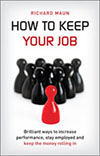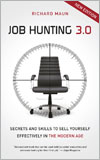better business blog
Tips and stories to add value to you and your organisation

How Much Should You Invest In Coaching?
Do you own a car? If you do, do you take it in for an annual service? Do you replace worn tyres when they look a bit threadbare?
Of course you do. It would dangerous to run a car until it breaks down. In fact, rather sadly, ‘run to break down’ is an operating strategy in many factories. Machines are only fixed when they fail, as owners push them to get the maximum production for the minimum downtime.
If we were a top sports person, maybe a tennis whizz or a speedy swimmer, we’d think nothing of hiring a top coach to guide us and tweak our performance. We’d know instinctively that we would greatly benefit from the input of a skilled observer.
Cars need looking after. Sporting talent needs shaping and encouragement. So, what about those of us who lack 4 wheels, or are unable to run a mile with the speed of a cheetah?
We need to take care of ourselves, learn to iron out unhelpful behavioural traits and find ways to polish our skills.
If we ‘run to breakdown’ we could find ourselves getting ill, or perhaps losing our job.
We might miss that juicy promotion, or fall foul of nasty office politics.
I’m a big fan of coaching because it has supported me and helped me to make progress in my business. I love being a business coach too and it’s great to work with people who want to learn new things.
So how much should we invest in it?
The word ‘should’ might sound a bit perjorative here, implying that we must have coaching. I’m using it to focus our thinking and would suggest that we have many options open to us for a healthy life of growth and development. Exercise, good diet and time spent with friends are all worthwhile activities too.
How much to spend depends on the depth of our pockets and the level of growth we need to achieve. However, I suggested to a client once that he consider spending between 1% and 2% of his salary on coaching for his first year of employment in a new role.
This translated into a session once a quarter. He had a terrific first year and ended up with a bonus at the end of it.
Another way of looking at it is to have a set monthly spend for a coaching day and then populate that time with staff who need support.
We could take the view that if it costs approx £15k to hire a new member of staff (and then another 6 months for them to become productive) a coaching budget of £10k per annum doesn’t sound unrealistic.
And finally, we could take a simple approach, spend £100 on a coaching session and have a really focussed conversation to help unlock an issue that’s troubling us.
This week ask yourself how you would use the time if you decided to spend £100 on some coaching? Or would you spend £90 on coaching and £10 on coffee and cake?!
Next week: 4 Great Questions For Appraisals
e-publishing
Click icon for details


recent posts
browse archive
books
Click cover to view details on Amazon

How to Keep Your Job
Brilliant ways to increase performance, stay employed and keep the money rolling in
Published 2011 Marshall Cavendish
208pp

Job Hunting 3.0
Secrets and skills to sell yourself effectively in the Modern Age
Published 2010 Marshall Cavendish
260pp

 RSS
RSS


